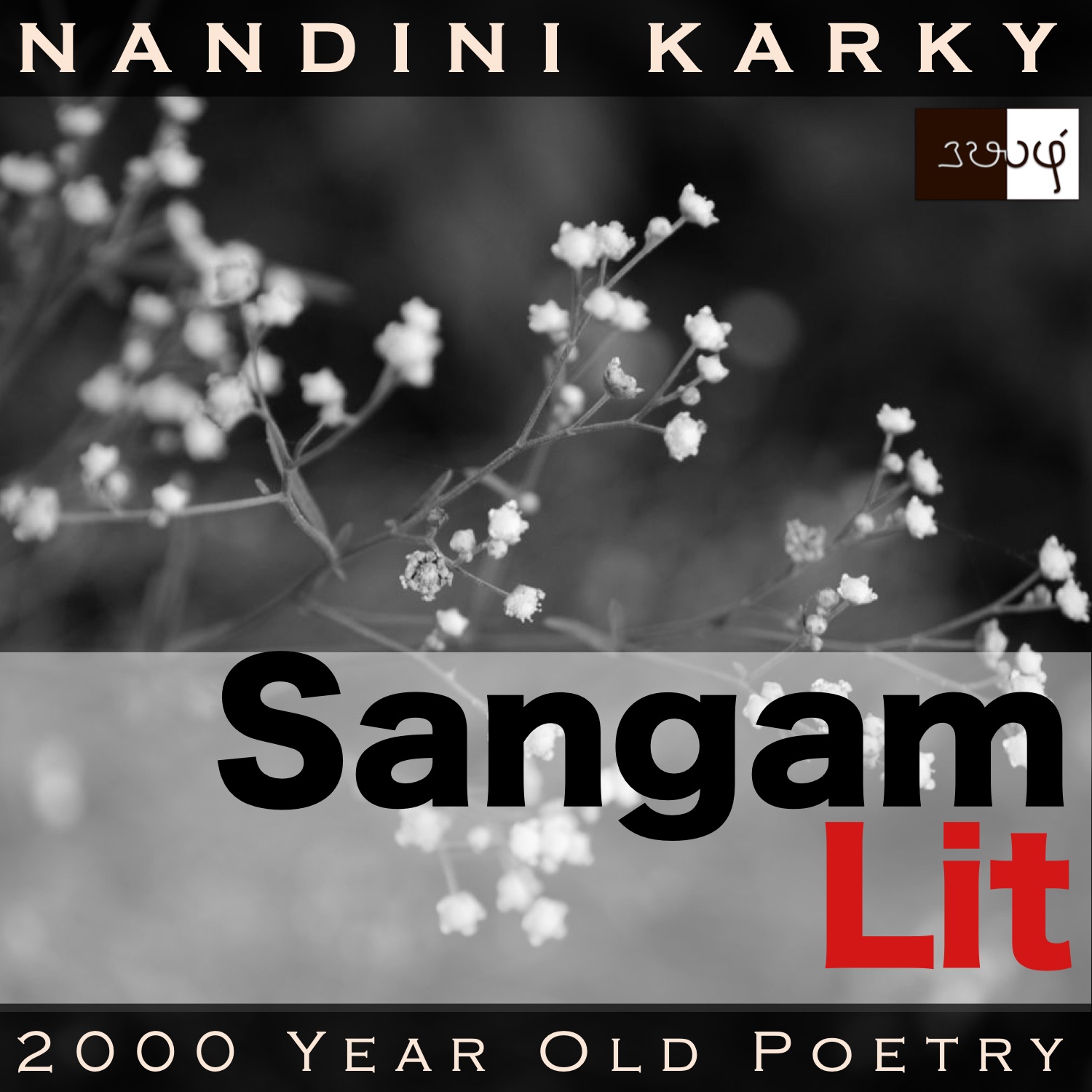Podcast: Play in new window | Download
Subscribe: Apple Podcasts | Spotify | Amazon Music | Android | iHeartRadio | TuneIn | RSS | More

In this episode, we perceive a lady’s angst as the season changes, as depicted in Sangam Literary work, Kurunthogai 188, penned by Madurai Alakkar Gnaalar Makanaar Mallanaar. Set in the forest regions of ‘Mullai’, the verse speaks in the voice of the lady to the confidante, as the man is delayed beyond his promised season of return.
முகை முற்றினவே முல்லை; முல்லையொடு
தகை முற்றினவே, தண் கார் வியன் புனம்-
வால் இழை நெகிழ்த்தோர் வாரார்-
மாலை வந்தன்று, என் மாண் நலம் குறித்தே.
‘A rainy evening arrives, but he doesn’t’ exclaims this verse. The first line ‘முகை முற்றினவே முல்லை’ meaning ‘wild jasmine buds have matured’ brims over with the beauty of alliteration. In the words ‘தண் கார் வியன் புனம்’ meaning ‘moist and cold season in the vast forests’ reveal both the setting and the season of this verse. The phrase ‘வால் இழை நெகிழ்த்தோர்’ meaning ‘the one who made glowing jewels slip away’ clearly tells us that someone is pining for a person, who has parted away. Ending with the words ‘என் மாண் நலம் குறித்தே’ meaning ‘targeting my fine beauty’, the verse welcomes us to explore more.
Familiar sights of wild jasmine blooms and symptoms of pining fill this verse. The context reveals that the man and lady had been leading a married life when the man parted away to gather wealth. Before he leaves, he promises to return before a particular season. After time has elapsed, one day, the lady says to her confidante, “Wild jasmine vines brim with blossomed buds; These jasmine blooms make beauty brim all over the widespread forests in this cool, rainy season. The one, who made my luminous jewels slip away, comes not – But, intending to strike at my excellent beauty, here comes the evening!” With these words, the lady conveys to her friend her feelings as the rainy season arrives while still there’s no sight of the man.
A scene we have often seen in Sangam verses. Is there any new nuance that we can gather? Let’s listen to the lady closely to find out. The lady turns her attention to the fully mature wild jasmine buds. Then, she says how these white flowers with full blossomed buds are making that forest land shine with exquisite beauty in that rainy season. Indeed, the rains are here but the one, who has made her pine and made her lose her health, arrives not. To pierce her wound further, the evening too was there, intending on all out-attack on her fine beauty!
Note how the lady dwells on the very elements that cause her suffering – the rainy season, the blooming buds and the approaching evening. Could this be what therapists describe as ‘being with your pain’? Even as she suffers, there is mindfulness in her thoughts. She focuses on the elements outside herself to make sense of her pain within. Hope she finds solace in this process. Stepping out of this particular scene and focusing on the larger picture, why did Sangam poets repeatedly dwell on this theme of a pining lady, as they were penning verses for their patrons? Perhaps, it was a subtle nudge that their own beloved was waiting for them likewise back home and that their patrons should shower them with the wealth they have come seeking, much like the male protagonists of their poems. Whether this is the truth or mere speculation about past intentions, we, the descendants, are in any case, left richer with many a serene sight from nature!




This is what we expect from a connoisseur of Indian poetry! Thank you for the musing.